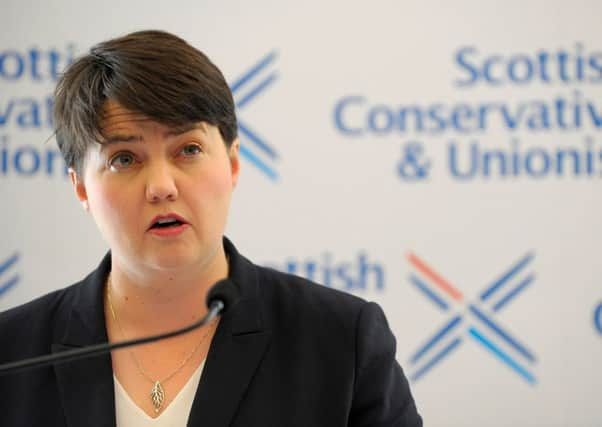Brian Monteith: Davidson leading UK Tories no longer fanciful


What now beckons for Ruth Davidson? The Scottish Tory Party went further than just beat its modest target numbers – it has actually saved the Union from separation and reversed the course of history that was, until Friday, talked with a degree of inevitability.
The facts are stark; by coming second in number of seats and vote share this is the best Scottish Conservative result against the Labour Party since 1955; by reaching 13 Scottish MPs it is the party’s best tally since 1983, and winning 28.6 per cent of the votes is its best share since 1979.
Advertisement
Hide AdAdvertisement
Hide AdTrue, there was some disappointment in failing to win Perth and Edinburgh South West, but in taking the prized scalps of Alex Salmond, Angus Robertson and the ex-Tory Tasmina Ahmed Sheikh there was enough delirium to more than compensate.
• READ MORE: Theresa May claims only Tories can offer ‘certainty’
More astounding is to think that it could have been even better. Had it not been for the dead hand of May’s Conservative campaign the Labour surge would not have materialised and more seats could have been won. By comparison Davidson kept her messaging simple and had the bottle to take on all comers. The desperately poor Conservative Party manifesto for England created a dead weight of bad news stories the Scottish Party had to carry, making her performance all the more impressive.
Crucially though, it is only because Davidson’s campaign was so successful that the Conservatives at Westminster are in a position to form a minority government, putting to and end for now the arguments about a democratic deficit. Add to this the likely combination of support from ten Democratic Unionist Party members and we at last have a truly United Kingdom Government.
Naturally there has already been much comment in party circles about how Ruth Davidson would make an ideal UK party leader. That prospect is no longer as fanciful as it once was. Although she would have to win a Westminster seat to do it, that feat that no longer looks beyond her. The main obstacle is that she does not appear to want it, having her eyes firmly set on becoming First Minister instead. If that can be achieved in the next five years then who can deny she might yet go on to London to show how strong and stable leadership can be delivered?
• Brian Monteith is editor of ThinkScotland.org